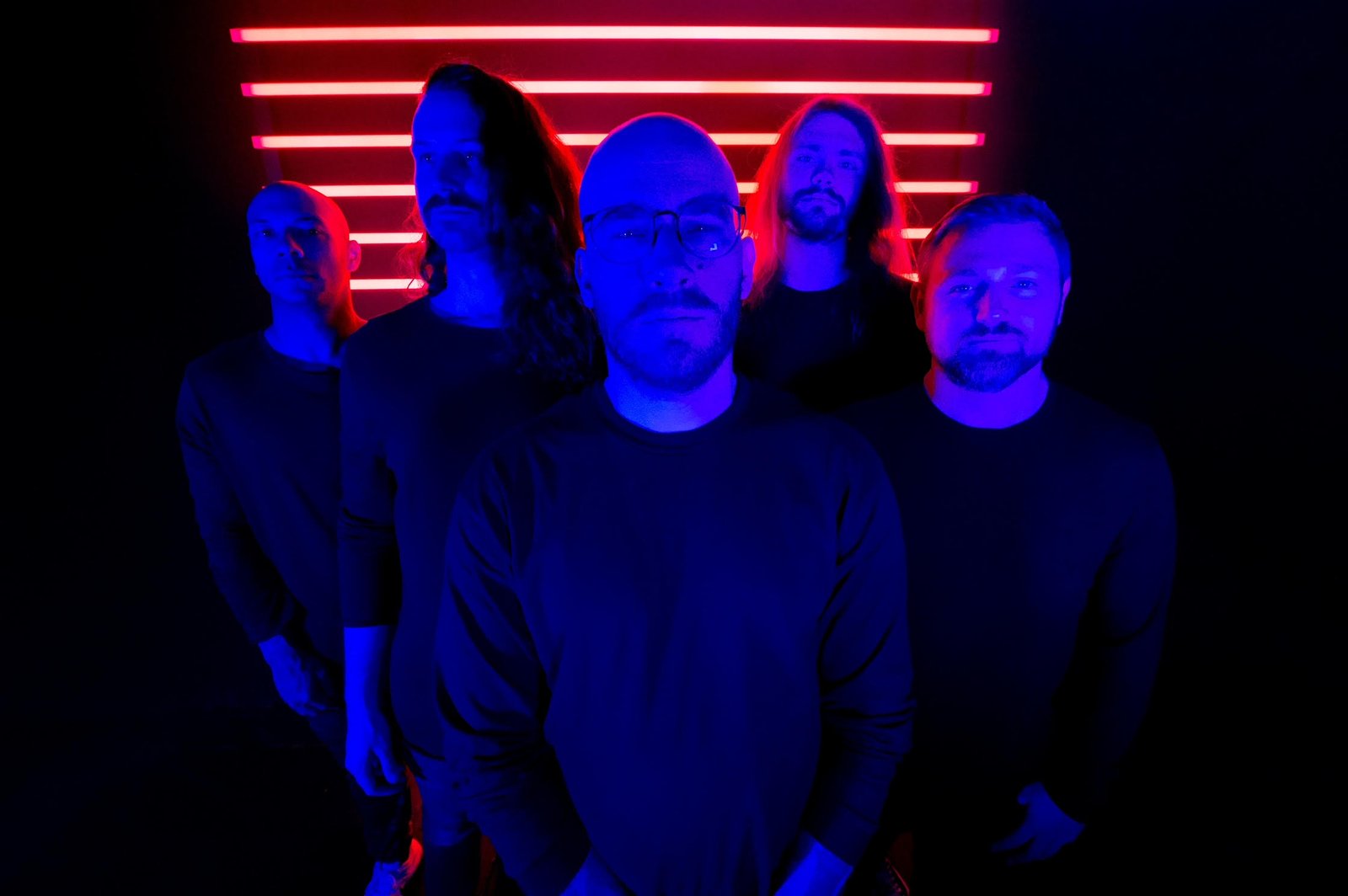The Zenith Passage expands upon their progressive and technical death metal foundation on Datalysium using more grooves, synthetic and electronic elements, and conceptual themes.
Release date: July 21, 2023 | Metal Blade Records | Facebook | Instagram | Merchandise
The Los Angeles progressive death metal act The Zenith Passage has been releasing music since 2013’s Cosmic Dissonance. That EP showed a dark, more core-influenced approach to the genre that went into more technical territory with 2016’s Solipsist. With significant classical and symphonic influences, a theatrical flair, and some shared membership, that release positioned the band alongside other California death metal leaders like The Faceless. However, the band has not released a record since 2016, raising questions about where the band could go from here.
Seven years later, The Zenith Passage is back to answer that question with a renewed line-up and sophomore full-length, Datalysium. Together, original guitarist/keyboardist/backing vocalist Justin McKinney, guitarist Christopher Beattie (Dreamer), vocalist Derek Rydquist (ex-The Faceless, John Frum), and bassist Brandon Giffin (ex-The Faceless, Cynic) create a sophomore record that stands proudly against Solipsist while refining their approach to groove and melodic singing, and expanding their electronic elements and conceptual themes, as the band describes:
‘There’s always been things that were subtly done on previous releases, like jazz fusion passages, dissonant black metal, synth, and orchestral elements, as well as singing. What we haven’t done before is put those influences and ideas more upfront in the songwriting and production. Singing has become a pretty prominent part of some of these songs, as well as synth orchestration and really eerie, dissonant, pissed off black metal influence.’
The Zenith Passage plays a brand of progressive death metal that is pristine, produced, and exacting in its attention to detail, not unlike some of the genre’s leaders in the 2000s and 2010s, like Cynic, Fallujah, and The Faceless. With this approach, there’s always a risk of sacrificing some aggression for articulation. I can anticipate some fans of death metal critiquing Datalysium for just such a trade-off.
However, The Zenith Passage actively recognizes this critique, incorporating a level of groove that feels more pronounced here than on previous releases. For example, “The Axiom of Error” is an aggressive opening blast that thrashes through technical stop-start rhythms and guitar solos alongside half-time breaks. Elsewhere, “Divinertia II” opens with a subversive take on a breakdown. Singles “Synaptic Depravation” and “Algorithmic Salvation” build around exceptionally tight chugs and controlled blasts of rhythmic intensity. However, guitar harmonies and synths lend layers of atmosphere and melody to this precise percussive onslaught, giving these songs a spacey and futuristic feel exemplified by the massive synths that close out “Synaptic Depravation”. This attention to tone and sound design is no accident. The band does not describe Datalysium as a concept album. Still, it does nonetheless revolve around themes that are highlighted by the group’s production and lyrical choices: ‘Ultimately, we explore some concerning impacts of technology on humanity and how its progression can breed fear and loneliness, which in turn can be used for control and obsoletion.’
While the band clearly balances intensity with intricacy, they become more experimental toward the record’s conclusion. “Automated Twilight” uses heavily manipulated vocals and washes of clean guitars before exploding into anthemic singing and synths that evoke comparisons to The Contortionist and Cynic. The closing title track continues this anthemic feel into the album’s finale, using blackened blast beats alongside midtempo riffage and a range of hard-hitting vocal choices. Many elements are going on with “Datalysium”, but they are all linked by a fluid bass performance from Brandon Giffin. Giffin’s use of percussive bass techniques alongside tasteful flourishes and fills beautifully interweaves the rhythmic and melodic complexity of the rest of the band, making for a standout contribution to an already impressive record.
The Zenith Passage is an impressive outfit by any measure. Their technical ability is worthy of admiration, but that is only furthered by their progressive approach to composition and instrumentation. With a mix of clean and growled vocals, intertwining guitar and bass performances, a variety of auxiliary instruments like synths and strings, and a range of tempos, genres, and feels, one will hardly get bored listening to Datalysium, especially if you love the various bands I’ve mentioned throughout this review. For a sophomore record, much has been accomplished. While I’m still determining if The Zenith Passage has stepped out of the shadow of their influences and into their own sound, what they’ve accomplished on Datalysium makes me highly confident that they soon will.






